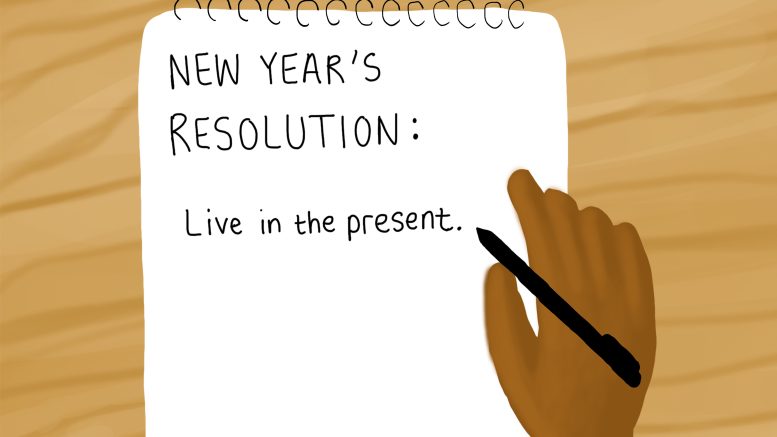As 2023 is upon us and a fresh set of resolutions are made for the upcoming year, we
can’t help but reflect on the past year and look forward to the possibilities of the coming
months.
Perhaps you are still reminiscing about 2022 because it was the best year for you
professionally, socially, romantically or financially. Or perhaps, last year was the worst 12-
month period of your life, and you’re eager for what 2023 has in store.
These small comparative reflections are important to keep us on track and remind us of
what we really want out of life. However, sometimes these comparisons can get out of hand
when they stop us from living in the present moment.
These comparisons of the present to the past are what gave birth to the infamous “I was
born in the wrong decade” attitude often found in most YouTube comment sections of
musical artists like the Beatles, Ella Fitzgerald or Bob Dylan.
This sentiment comes from both the appreciation and glorification of the eras that came
before us.
However, when people romanticize the 1950s — the era when you could go to your local
dance hall to do the twist or jitterbug with your friends to Elvis Presley’s “Jailhouse Rock” —
they forget the sexism and racism that was widely prevalent, and that pervaded so many
people’s daily lives.
While the present has its own problems that seem impending and overwhelming at times,
such as climate change, the pandemic, the cost of living crisis and the looming threat of a
nuclear war, there has never been an era without problems.
There have been countless wars, revolutions, famines, pandemics and social injustices.
Viewing our past through rose-colored glasses can prevent us from perceiving the true
reality of our history. To do that, we need to recognize that the past was not perfect, and that
romanticizing it can be problematic. Only then can we appreciate what we have now.
Besides, only the individuals from the past are gone. There are still remnants of their lives
left behind for us to relish today. The music, clothing, movies and other aspects of those
decades are still accessible for us to consume at the click of a button or a drive to Value
Village. You don’t have to be living in the 50s, 70s or 90s to appreciate them.
On the flipside, it can be just as damaging to glorify the future as it might be to romanticize
the past.
When we place too much emphasis on an idealized vision of the future, we run the risk of
missing out on the experiences and happiness that can be found right in front of us.
Even if planning for tomorrow creates expectations that can help us set goals to progress
toward our dreams, living in the future prevents us from fully appreciating the present.
Since the future is an unknown goal post that is constantly changing, idealizing something
so indefinite and fickle can lead to dissatisfaction or disappointment about what could have
been.
While I hope we can continue to advance and develop into a better society, that’s not a
given. The only thing that is definite is the here and now.
Even if our current reality can occasionally feel depressing, I think that there are things to
be thankful for. Improvements to health care, medicine and technology have made it
possible to easily access virtually infinite amounts of information, and there is greater access
to rights for those who have historically been disadvantaged.
As Drake once famously put it, “what a time to be alive.” Those are words to live by.
Things do not seem to be the best right now, but they could be worse.
It’s easier to fall in love with an era that you’ve never lived through, or live in a daydream
of a potential future, than to live in the present. Ignorance is bliss.
Besides, the past is still there for us to observe and enjoy, while the future, although
uncertain, is inevitably coming. Thus, this new year’s resolution should be to live in the
moment and enjoy the now.
Adopting positivity and gratitude is the only way we can be truly appreciative and happy
with what we’ve got.

